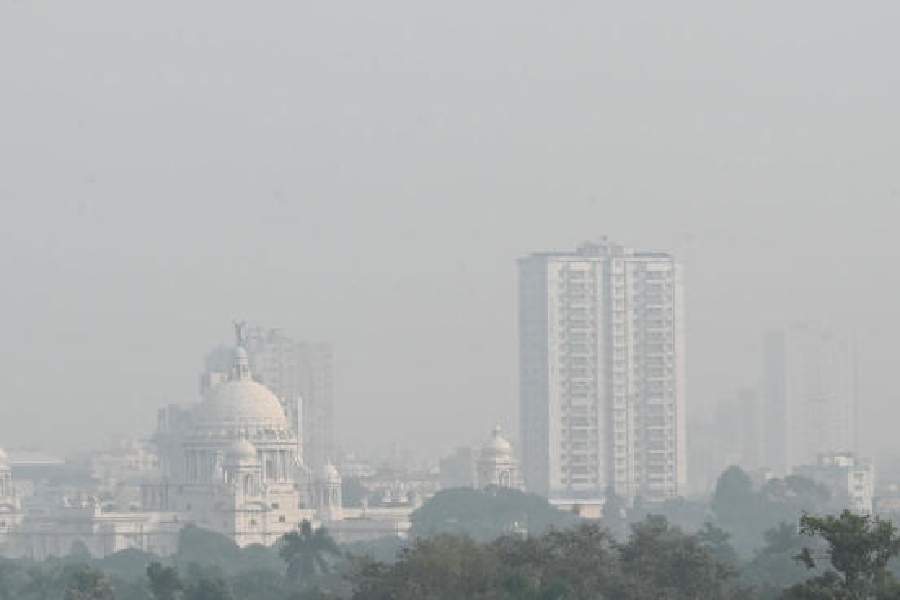Water the roads, cover up construction material at building sites and stop burning waste — the Kolkata Municipal Corporation (KMC) has asked its departments to take these measures to curb air pollution in the city.
Green activists, however, said such orders were rarely implemented and waste burning or not covering construction material continued across the city, contributing to the worsening air quality.
The Telegraph reported on Wednesday that Kolkata’s air quality had already become “poor” on Tuesday. It was almost a repeat of this scenario on Wednesday.
At 7pm on Wednesday, four out of the seven air quality monitoring stations in the city reported poor air quality.
A note issued by the KMC’s commissioner on Wednesday — addressed to the heads of the solid waste management, and parks and squares departments — asked department heads to water the roads on a regular basis.
“In a bid to combat growing air pollution in the city this winter, the KMC authority has decided to use road washing machines and sprinklers to keep suspended particulate matter and dust in check,” the note said.
The note also suggested “sprinkling major thoroughfares that are most polluted and washing tall trees that absorb pollutants”.
Sources in the civic body said the building department of the kMC had issued instructions to owners, architects and engineers involved with under-construction buildings to cover sand and other construction material, spray water over them and cover construction sites with curtains or geo-textile fabrics so that dust emanating from the sites do not pollute the surroundings.
There is a standing instruction to officials and engineers to ensure that waste cleaners in the city do not burn dry waste.
An environment activist, however, said that the authorities have been issuing such orders for quite a few years now but waste burning in the open or dust emanating from construction sites that remain uncovered are common across the city. “There is no one to check what is happening. Only issuing orders doesn’t help,” said Naba Dutta, secretary of Sabuj Mancha.
On Wednesday, the air quality index (AQI) at Ballygunge was 276, it was 268 at Bidhannagar, 214 at Jadavpur and 238 at the Victoria Memorial. The Central Pollution Control Board (CPCB) has classified an AQI between 201 and 300 as poor.
According to the CPCB, poor air quality can lead to “breathing discomfort to most people on prolonged exposure”.
The other three continuous air quality monitoring stations in Kolkata — Rabindra Sarobar, Rabindra Bharati and Fort William — had moderate air quality at 7pm on Wednesday. All three had AQIs in the range of 101 to 200.
According to the CPCB, moderate air quality can cause “breathing discomfort to the people with lungs, asthma and heart diseases”.
A pulmonologist told The Telegraph that people should give up their morning walks for the next few months. He advised those going out for a walk to wear masks whenever the AQI goes above 100, which means the air quality falls to moderate.
An air quality management specialist said the authorities in Kolkata should try to look for local sources of pollution, identify hotspots of pollution and take measures to curb pollution in these places.
